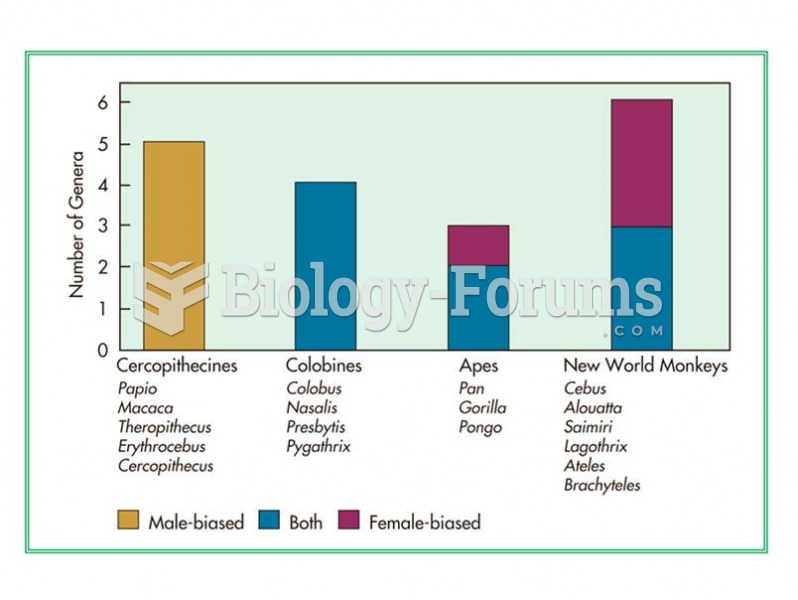|
|
|
Most childhood vaccines are 90–99% effective in preventing disease. Side effects are rarely serious.
The immune system needs 9.5 hours of sleep in total darkness to recharge completely.
Blood in the urine can be a sign of a kidney stone, glomerulonephritis, or other kidney problems.
Hypertension is a silent killer because it is deadly and has no significant early symptoms. The danger from hypertension is the extra load on the heart, which can lead to hypertensive heart disease and kidney damage. This occurs without any major symptoms until the high blood pressure becomes extreme. Regular blood pressure checks are an important method of catching hypertension before it can kill you.
Intradermal injections are somewhat difficult to correctly administer because the skin layers are so thin that it is easy to accidentally punch through to the deeper subcutaneous layer.






